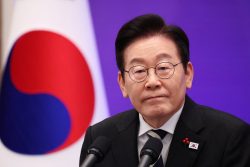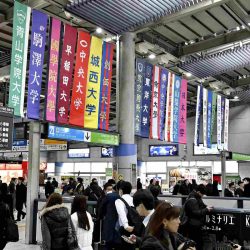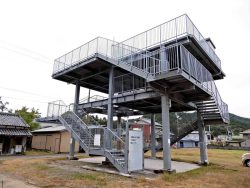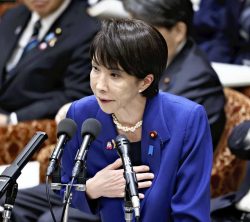Japan Wary of South Korea’s Possible Foreign Policy Shift; Impeachment May Impact Trilateral Relations With U.S. As Well
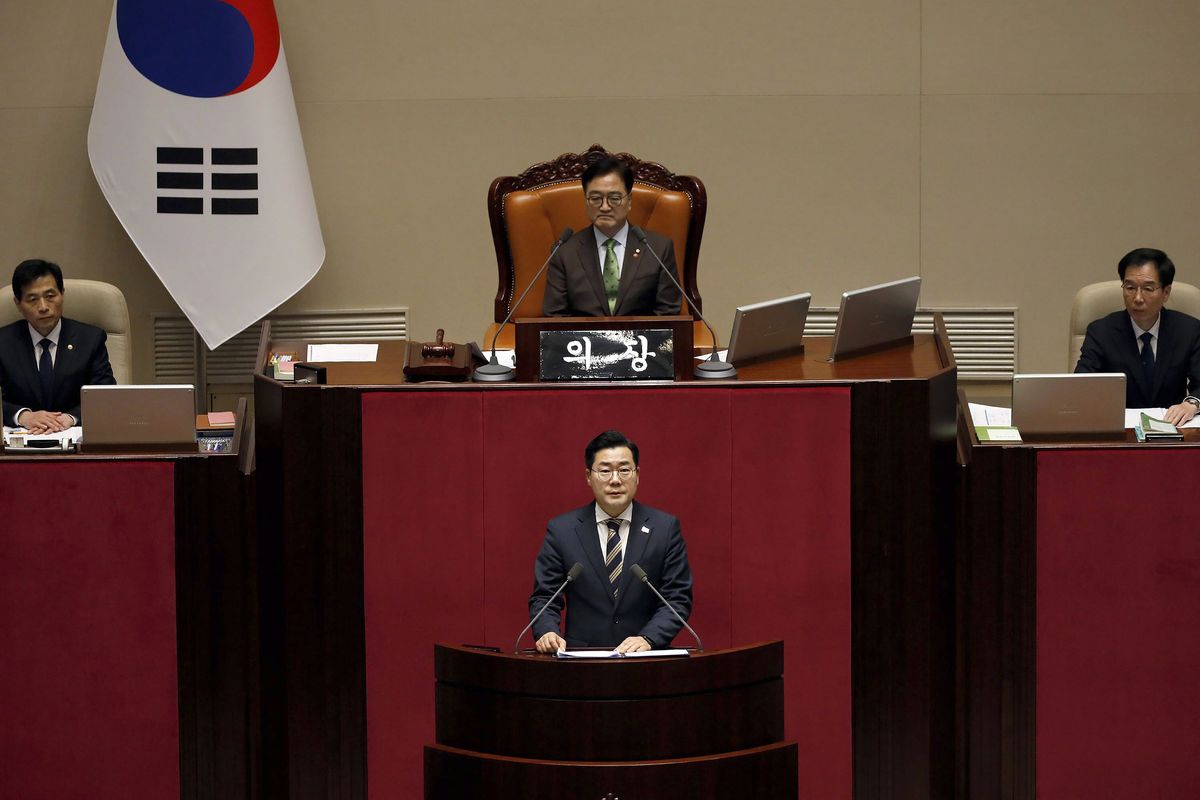
Park Chan-dae, floor leader of the Democratic Party, speaks during the plenary session to vote on the impeachment of President Yoon Suk Yeol, at the National Assembly in Seoul on Saturday.
13:30 JST, December 15, 2024
Japan will likely have to review its foreign policy strategies now that South Korean President Yoon Suk Yeol has been suspended from his duties after lawmakers voted to impeach him.
The Japanese government has worked with its South Korean counterpart to improve the bilateral relationship, and if that momentum stalls, trilateral cooperation including the United States under the incoming administration of U.S. President Donald Trump could stagnate.
A three-way framework for dialogue with China may also grind to a halt, and there are concerns that North Korea, backed by Russia, could take advantage of the political vacuum to step up its provocations.
“I refrain from commenting on the internal affairs of other countries,” Prime Minister Shigeru Ishiba told reporters during a visit to Fukushima Prefecture prior to the impeachment vote on Saturday evening. However, Ishiba also said: “The importance of Japan-South Korea relations will not change in any way. We can’t foresee [what will happen in South Korea] at all, but we must continue to communicate closely.”
Ishiba had been considering inviting Yoon to Japan as a state guest on the occasion of the 60th anniversary of the normalization of diplomatic relations between the two countries next year, according to sources. Ishiba had intended to project to people in and outside Japan an image of the two countries strengthening their bilateral ties through the state visit, which would be the first by a South Korean president in about 20 years. However, this would now be difficult to realize.
If Yoon is removed from office, a leftist government that is negative about boosting relations with Japan could rise to power. The Japanese government is therefore wary of a shift in Seoul’s foreign and security policies. One immediate concern is the impact on the current strategy toward China.
Under the trilateral framework, Japan, the United States and South Korea have deepened security cooperation with an eye not only on North Korea but China as well. Trump, who will take office in January next year, has been reluctant to engage in multilateral cooperation and has put pressure on U.S. allies regarding the cost of stationing U.S. troops in these countries and regions.
Defense Minister Gen Nakatani said in Nago, Okinawa Prefecture, on Saturday, “The regional security environment is increasingly severe, so cooperation between Japan and South Korea as well as cooperation among Japan, the United States and South Korea is even more important.”
However, depending on the political situation in South Korea, the unity of Japan, the United States and South Korea is likely to reach a critical juncture.
Japan and South Korea resumed full-fledged trilateral dialogue involving China last year for the first time in four years, building momentum for engagement with Beijing. Japan, the next chair of this trilateral dialogue, had envisaged holding a meeting of the three countries’ foreign ministers early next year to pave the way for a summit of their leaders in the spring. But this plan will likely be halted.
“For the time being, we’ll focus on bilateral diplomacy between Japan and China and aim for reciprocal visits by foreign ministers,” a senior Japanese Foreign Ministry official said.
The declaration of martial law is said to have also thrown the South Korean military into disarray. Some observers say North Korea could launch an intercontinental ballistic missile by taking advantage of disruptions in the South’s readiness to respond to an emergency.
"World" POPULAR ARTICLE
-

8 Japanese Nationals Stranded on Indonesia’s Sumatra Island
-

U.S. Senate Resolution Backs Japan, Condemns China’s Pressure
-

China to Impose Sanctions on Shigeru Iwasaki, Former Head of Japan’s Self-Defense Forces, Who Serves as Adviser to Taiwan’s Executive Branch
-
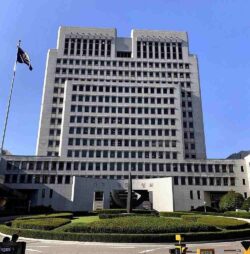
South Korea’s Top Court Dismisses Nippon Steel Appeal in Lawsuit over Requisitioned Worker
-
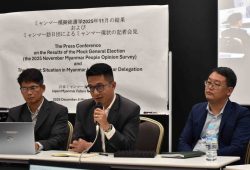
75% of Myanmar People Reject Army’s Political Involvement, According to Survey Conducted by Aid Organization
JN ACCESS RANKING
-

Tokyo Economic Security Forum to Hold Inaugural Meeting Amid Tense Global Environment
-

Keidanren Chairman Yoshinobu Tsutsui Visits Kashiwazaki-Kariwa Nuclear Power Plant; Inspects New Emergency Safety System
-

Imports of Rare Earths from China Facing Delays, May Be Caused by Deterioration of Japan-China Relations
-

University of Tokyo Professor Discusses Japanese Economic Security in Interview Ahead of Forum
-

Japan Pulls out of Vietnam Nuclear Project, Complicating Hanoi’s Power Plans



